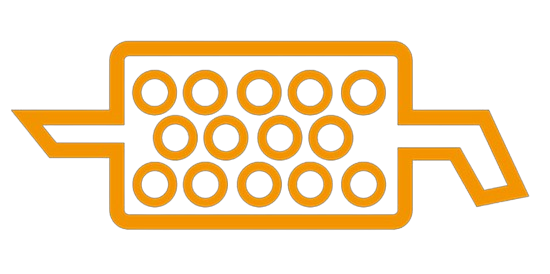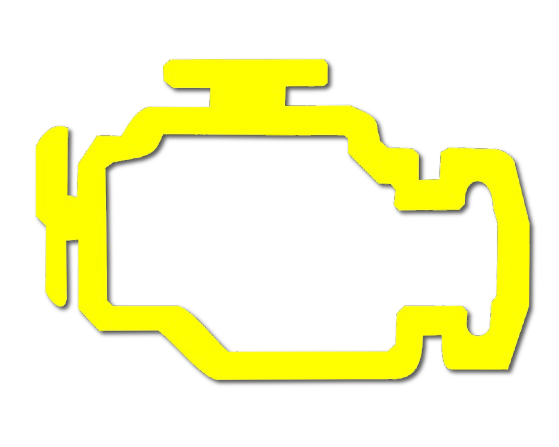DPF, EGR, AdBlue & OPF/PPF Systems
At TB Tuned, we specialise in delivering advanced, custom-written software solutions for managing and resolving issues related to DPF (Diesel Particulate Filter), EGR (Exhaust Gas Recirculation), AdBlue (SCR), and OPF/PPF (Gasoline/Otto Particulate Filters) systems. These systems, while essential for meeting modern emissions standards, often become sources of recurring faults, warning lights, and performance limitations—especially in vehicles operating under demanding conditions.
Our in-house developed tuning files are designed to safely recalibrate or disable these emissions control systems where appropriate, depending on the vehicle’s application and regional requirements. Each solution is created with a focus on reliability, drivability, and long-term performance, ensuring your vehicle runs smoothly without unnecessary restrictions or interruptions.
Whether you're dealing with:
- Blocked or faulty DPFs
- EGR-related power loss or carbon build-up
- AdBlue system malfunctions and warning lights
- OPF/PPF clogging or backpressure issues
…our team has the expertise to deliver precise and proven software adjustments tailored to your exact ECU and setup.
These solutions not only help eliminate persistent faults and improve performance but also reduce maintenance costs and downtime, making them ideal for both everyday drivers and performance-focused applications.
All files are tested, safe, and backed by expert support, giving you total confidence in every tune.

⚠️ DPF Issues Explained
A DPF (Diesel Particulate Filter) is a component in modern diesel vehicles designed to trap and remove soot (particulate matter) from the exhaust gases, helping to reduce emissions and meet environmental regulations.
Over time, the DPF fills up with soot and needs to be cleaned through a process called regeneration, where high temperatures burn off the accumulated particles. However, when this process doesn’t happen properly—usually due to frequent short trips, driving at low speeds, or sensor failures—the filter becomes clogged.
Common DPF Issues Include:
- Clogged or blocked filter: Reduced airflow and increased backpressure, leading to poor performance.
- Frequent warning lights: Dashboard alerts telling you the DPF is full or malfunctioning.
- Loss of power or limp mode: The vehicle may restrict performance to protect the engine.
- Failed regeneration: Incomplete or unsuccessful soot burn-off, making the issue worse over time.
- Increased fuel consumption: The engine works harder to push exhaust gases through a blocked filter.
Why It Matters:
Left unresolved, DPF issues can escalate quickly—leading to reduced performance, engine damage, increased fuel consumption, or in severe cases, a complete non-start condition. These problems not only disrupt your day but can result in costly repairs and unnecessary downtime.
That’s why many tuning professionals rely on DPF software solutions to either recalibrate or safely disable the system where appropriate—particularly for vehicles used in high-mileage, commercial, or performance-focused applications. These tailored solutions help eliminate recurring faults, reduce maintenance headaches, and restore reliable, unrestricted performance.
⚠️ EGR Issues Explained
An EGR (Exhaust Gas Recirculation) system is a vital component in modern vehicles, designed to reduce harmful nitrogen oxide (NOx) emissions. By rerouting a portion of the exhaust gases back into the engine’s intake, the EGR system helps to lower combustion temperatures, which in turn reduces NOx emissions and helps the vehicle meet environmental regulations.
Over time, the EGR valve and related components can become clogged with carbon deposits or fail due to excessive heat, wear, or mechanical failure. When this happens, the system can malfunction, leading to performance issues and increased emissions.
Common EGR Issues Include:
- Carbon build-up: The accumulation of carbon in the EGR valve, intake manifold, and related parts, which restricts airflow and affects engine performance.
- Frequent warning lights: Dashboard alerts indicating a problem with the EGR system, such as a clogged valve or failed sensor.
- Loss of power or limp mode: The vehicle may enter a reduced-performance mode to protect the engine, resulting in sluggish acceleration and poor throttle response.
- Stuck or faulty EGR valve: A malfunctioning valve, either stuck open or closed, which disrupts exhaust gas recirculation and causes performance issues.
- Increased fuel consumption: An inefficient EGR system can cause the engine to burn more fuel due to improper combustion or exhaust recirculation.
Why It Matters:
If left unresolved, EGR issues can lead to significant problems, including reduced engine performance, increased fuel consumption, higher emissions, and even engine damage. These issues can disrupt your driving experience, cause unexpected breakdowns, and result in costly repairs.
That’s why many tuning professionals turn to EGR software solutions to recalibrate or safely disable the system, particularly for vehicles with high mileage, commercial use, or performance modifications. These tailored solutions help eliminate recurring faults, improve engine reliability, and restore smooth, unrestricted performance.


⚠️ AdBlue Issues Explained
AdBlue, a high-purity urea solution, is used in many modern diesel vehicles to reduce harmful nitrogen oxide (NOx) emissions. The AdBlue system is part of a larger Selective Catalytic Reduction (SCR) system, which injects AdBlue into the exhaust gases to convert NOx into harmless nitrogen and water vapour. This system helps vehicles meet stringent environmental regulations, such as Euro 6 standards.
However, like other emission control systems, AdBlue systems can face issues over time. If the system malfunctions, it can cause poor performance, increased emissions, or even prevent the vehicle from starting altogether.
Common AdBlue Issues Include:
- AdBlue quality or level warnings: The system may trigger alerts when the AdBlue tank is low, or the solution quality is poor, causing incorrect dosing of the additive.
- AdBlue system failure: Malfunctions in the AdBlue dosing unit, sensors, or pump can lead to the system not injecting AdBlue into the exhaust as needed, resulting in increased emissions.
- Frozen AdBlue: In colder climates or if the vehicle is left in freezing conditions, the AdBlue solution can freeze, causing blockages in the system and preventing the AdBlue from being injected into the exhaust.
- AdBlue tank contamination: Dirt or foreign particles entering the AdBlue tank can cause blockages in the system, leading to performance issues and poor emissions control.
- AdBlue system sensor failure: Faulty sensors can result in incorrect readings, triggering warning lights, or even causing the vehicle to enter a limp mode.
Why It Matters:
Unresolved AdBlue system issues can cause significant performance problems, including reduced engine power, higher emissions, and failure to start due to regulatory safety mechanisms. Additionally, failing to meet emissions standards can result in costly repairs, fines, or even MOT test failure in the UK.
This is why many vehicle owners, especially those with high-mileage, commercial, or performance-focused vehicles, rely on AdBlue software solutions to recalibrate or disable the AdBlue system in specific scenarios. These tailored solutions help to eliminate recurring faults, avoid unnecessary downtime, and restore optimal performance while maintaining compliance with emissions standards when possible.
⚠️ OPF Issues Explained
OPF (Otto Particulate Filter), also known as Gasoline Particulate Filter (GPF), is a key component in modern petrol engines designed to capture and remove particulate matter (PM) or soot from the exhaust gases. The OPF serves a similar function to the DPF found in diesel vehicles, helping to reduce harmful emissions and meet strict environmental regulations, such as Euro 6 standards.
However, over time, the OPF can experience several issues, particularly when it fails to regenerate properly, leading to clogging or other performance problems. These issues can affect vehicle performance, fuel efficiency, and emissions compliance.
Common OPF Issues Include:
- Clogged or blocked filter: The OPF can become clogged with particulate matter, especially if the vehicle is primarily driven for short trips, city driving, or at low speeds, which prevents the system from completing its self-cleaning process (regeneration).
- Frequent warning lights: The check engine light or specific OPF fault codes may appear on the dashboard, indicating that the filter is full or malfunctioning.
- Loss of power or limp mode: If the OPF system fails, the vehicle may enter limp mode, limiting engine performance to prevent further damage.
- Failed regeneration: The OPF relies on a regeneration process to burn off soot, but if this fails due to driving conditions or component failure, the filter can become increasingly blocked, reducing engine performance.
- Increased fuel consumption: A blocked OPF forces the engine to work harder to push exhaust gases through the filter, resulting in inefficient fuel use and lower overall fuel economy.
- Excessive exhaust smoke: A malfunctioning OPF may lead to visible smoke from the exhaust, indicating that the system is not properly filtering particulate matter.
Why It Matters:
If left unresolved, OPF issues can lead to reduced engine power, higher emissions, poor fuel efficiency, and engine damage. In the UK, failing to address OPF problems can result in a failed MOT emissions test and potential non-compliance with environmental regulations, leading to costly repairs and possible fines.
To address these problems, many vehicle owners and tuning professionals opt for OPF software solutions, which can recalibrate or safely disable the OPF system when necessary—especially for high-performance, commercial, or high-mileage vehicles. These tailored solutions help eliminate recurring faults, restore engine performance, and ensure unrestricted operation without compromising emissions standards when possible.

